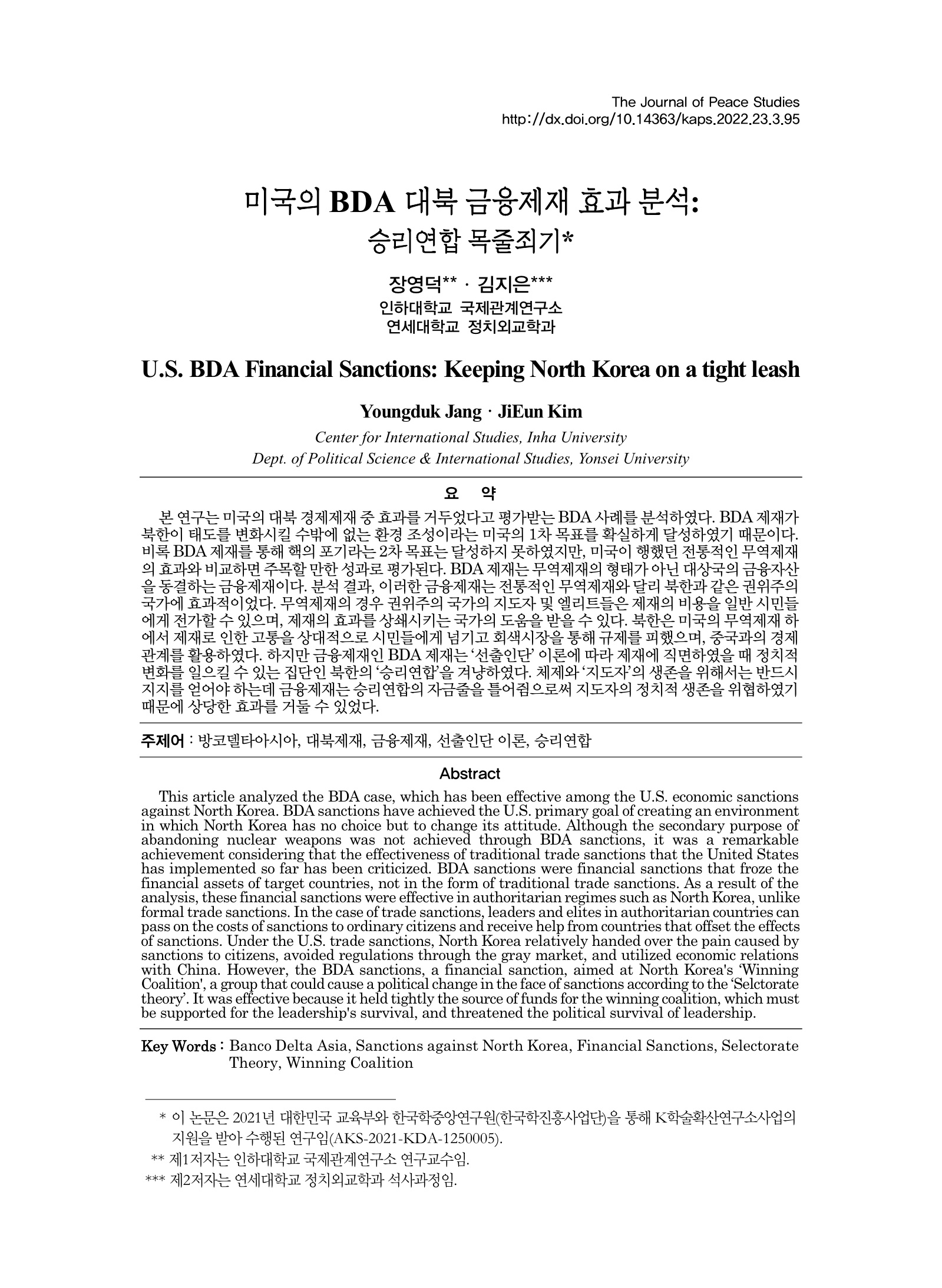Journal Article
Journal Article
U.S. BDA Financial Sanctions: Keeping North Korea on a tight leash(Youngduk Jang · JiEun Kim)
- Created 2022.10.24
- Writer관리자
- Views465

Abstract
This article analyzed the BDA case, which has been effective among the U.S. economic sanctions against North Korea. BDA sanctions have achieved the U.S. primary goal of creating an environment in which North Korea has no choice but to change its attitude. Although the secondary purpose of abandoning nuclear weapons was not achieved through BDA sanctions, it was a remarkable achievement considering that the effectiveness of traditional trade sanctions that the United States has implemented so far has been criticized. BDA sanctions were financial sanctions that froze the financial assets of target countries, not in the form of traditional trade sanctions. As a result of the analysis, these financial sanctions were effective in authoritarian regimes such as North Korea, unlike formal trade sanctions. In the case of trade sanctions, leaders and elites in authoritarian countries can pass on the costs of sanctions to ordinary citizens and receive help from countries that offset the effects of sanctions. Under the U.S. trade sanctions, North Korea relatively handed over the pain caused by sanctions to citizens, avoided regulations through the gray market, and utilized economic relations with China. However, the BDA sanctions, a financial sanction, aimed at North Korea's ‘Winning Coalition', a group that could cause a political change in the face of sanctions according to the ‘Selctorate theory’. It was effective because it held tightly the source of funds for the winning coalition, which must be supported for the leadership's survival, and threatened the political survival of leadership.
For full access to the article, please visit the following site of The Korean Association of Peace Studies.
*This article is written in Korean.
-
 미국의_BDA대북_금융제재_효과_분석_1.jpg (882.7KB / 다운로드 76회)
다운로드
미국의_BDA대북_금융제재_효과_분석_1.jpg (882.7KB / 다운로드 76회)
다운로드



